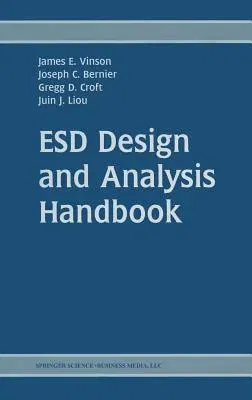Electrostatic Discharge (ESD) is a pervasive issue in the semiconductor
industry affecting both manufacturers and users of semiconductors. The
problem worsens with each new generation of parts and components. As
technology scales to higher levels of integration, circuits become more
sensitive to ESD and the design of protection becomes more difficult.
ESD Design and Analysis Handbook presents an overview of ESD as it
effects electronic circuits and provides a concise introduction for
students, engineers, circuit designers and failure analysts. This
handbook is written in simple terms and is filled with practical advice
and examples to illustrate the concepts presented.
While this treatment is not exhaustive, it presents many of the most
important areas of the ESD problem and suggests methods for improving
them. The key topics covered include the physics of the event, failure
analysis, protection, characterization, and simulation techniques. The
book is intended as both an introductory text on ESD and a useful
reference tool to draw on as the reader gains experience. The authors
have tried to balance the level of detail in the ESD Design and
Analysis Handbook against the wealth of literature published on ESD
every year. To that end, each chapter has a topical list of references
to facilitate further in-depth study.

